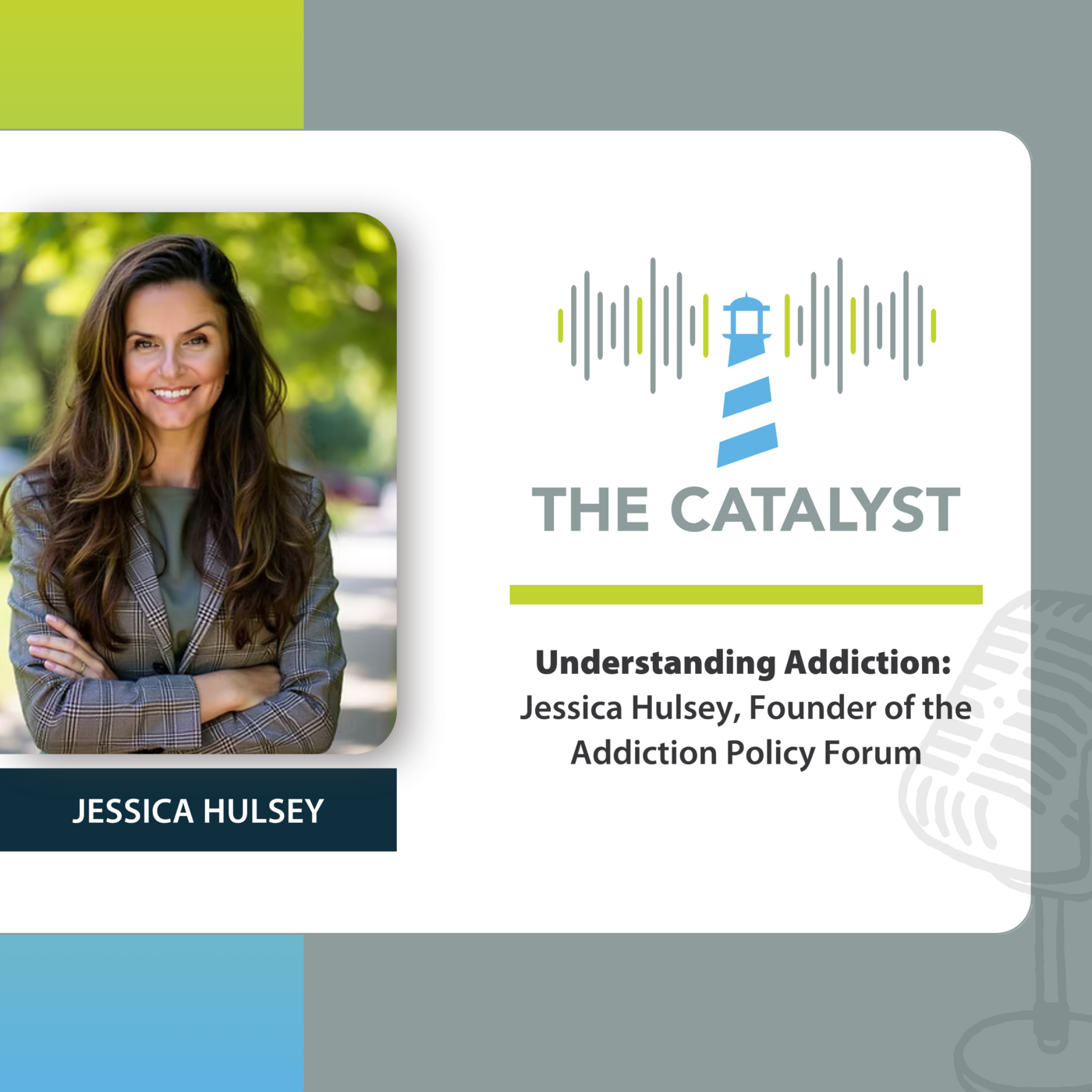The Healing Arm of the Law: Probation Officers as Agents of Recovery
Shining a light on integrated care to promote mastery and unlock human potential.
Emerging adults (EAs)—typically defined as those between the ages of 18 and 25—are overrepresented in the criminal legal system (CLS) and face disproportionately high risks of substance use disorders (SUDs). Despite these risks, few receive adequate treatment, particularly those in rural areas. The barriers are well-documented: long travel times, limited provider networks, stigma, and confidentiality concerns. Nationally, only about 10% of incarcerated individuals receive any substance use (SU) treatment at all, and only 5% of those with opioid use disorder (OUD) referred through the CLS receive medication-based treatment. Rural communities face even steeper challenges—fewer providers, greater stigma, and higher rates of opioid-related deaths.
Many of these emerging adults involved with the criminal legal system are under the supervision of probation officers (POs), who often serve as one of their most consistent points of contact.
A recent pilot study* explored an innovative approach: training probation officers to deliver contingency management, a well-established, evidence-based intervention, to their emerging adult clients. This model of “task-shifting” acknowledges the central role POs already play in the lives of CLS-involved youth, and reimagines them as part of the solution—bringing treatment closer to where these young adults already are. In settings where clinical providers are scarce and treatment barriers are high, especially in rural America, this approach could be a game-changer.
Yet, as promising as it sounds, implementing such a shift is anything but simple. It raises questions about training, workload, role clarity, and whether the criminal legal system can, or should, become a provider of therapeutic services. Still, in a landscape defined by persistent treatment gaps and growing urgency, the potential for probation officers to act not just as enforcers but as bridges to recovery is a compelling prospect worth exploring.
Task-Shifting: A Strategy to Expand Access
Task-shifting—training non-clinical professionals to deliver specific clinical interventions—has emerged as a promising solution to behavioral healthcare workforce shortages. This approach shows particular promise in the criminal-legal system, where probation officers maintain frequent, ongoing client relationships that position them as natural change agents.
Research demonstrates that when probation officers are trained in evidence-based practices like motivational interviewing, cognitive behavioral therapy, and contingency management (CM), they can significantly reduce recidivism and increase treatment compliance. Contingency management is especially well-suited for this task-shifting approach, as it aligns naturally with probation officers' existing responsibilities: drug screening, behavior monitoring, and implementing conditions and sanctions.
What Is Contingency Management?
Contingency management (CM) is a behavioral therapy that uses tangible rewards (gift cards, vouchers, or other incentives) to reinforce positive behaviors like abstinence or treatment participation. When individuals meet specific goals, such as testing negative on a urine screen, they receive rewards; failure to meet goals results in withheld rewards.
Though simple in concept, CM is one of the most extensively researched and validated substance use interventions available. Meta-analyses show it's highly effective for both short-term abstinence and long-term outcomes like treatment retention and supervision completion. Despite this evidence, CM remains underutilized in the criminal-legal system, mostly confined to problem-solving courts and virtually absent from rural probation departments.
Adapting CM for Emerging Adults
Recognizing the unique developmental stage of emerging adulthood (a time defined by the tension between dependence and autonomy), researchers developed a version of CM specifically for EAs: CM-EA. This model integrates traditional CM elements with support from a “concerned significant other,” such as a parent, mentor, or partner. These support figures help reinforce behavior change through both tangible support (transportation, housing, accountability) and emotional encouragement.
Studies show that involving significant others in treatment leads to better engagement, improved treatment outcomes, and higher completion rates. For EAs navigating identity, independence, and social reintegration after incarceration, this support can be especially impactful.
The Pilot: Probation Officers as Frontline Providers
To test this approach, researchers launched a pilot program during COVID-19 involving ten rural probation officers in Oregon who delivered CM-EA to 17 emerging adults on their caseloads.
Despite pandemic challenges—remote communication, social isolation, and strained resources—officers successfully delivered the program with fidelity. They found the intervention acceptable, appropriate, and feasible within their existing responsibilities, with several officers voluntarily applying the model to clients outside the study group.
The participants represented the target population: rural, criminal-legal system-involved emerging adults with histories of polysubstance use and felony convictions.
Results and Implications
The study’s outcomes were encouraging. Probation officers demonstrated the ability to faithfully implement CM-EA, and both POs and clients reported positive perceptions of the program. POs delivering CM felt more hopeful and energized in their work compared to those using traditional supervision models. This suggests that implementing such programs could have dual benefits: improving outcomes for clients while increasing job satisfaction for officers.
Yet, challenges remain. Rural communities still face resource limitations, including workforce shortages, technological constraints, and a lack of infrastructure to support ongoing behavioral health services. While CM-EA shows promise, it must be accompanied by broader investment in training, support, and systems integration to ensure long-term success.
The Road Ahead
The pilot study offers a promising glimpse into how probation officers can help close the treatment gap for young adults with substance use disorders, especially in rural areas where traditional service models have failed to take hold. As public health and criminal-legal systems continue to evolve in the wake of the opioid epidemic and COVID-19, this kind of innovative, community-based task-shifting may prove essential.
Future research with larger samples and longer-term follow-up is needed. But the idea that probation officers can play a therapeutic role in helping emerging adults turn their lives around is no longer theoretical. It’s happening, and it could be a key part of building a more responsive, humane, and effective legal system.
*Drazdowski, T. K., Kelton, K., Hibbard, P. F., McCart, M. R., Chapman, J. E., Castedo de Martell, S., & Sheidow, A. J. (2024). Implementation outcomes from a pilot study of training probation officers to deliver contingency management for emerging adults with substance use disorders. Journal of Substance Use and Addiction Treatment, 166. https://doi.org/10.1016/j.josat.2024.209450
Free, Online Toolkit for Partnering with Communities in Substance Use Research
Chestnut Health Systems has released the final chapters of its free, online Community-Based Participatory Research (CBPR) toolkit, created to help researchers build meaningful partnerships through Community Boards of people with lived experience with substance use. This resource is informed by years of collaboration with individuals from the HEAL Connections Lived Experience Panel, the JEAP Initiative Community Boards, the CHEARR Community Boards, and the PATH Community Board.
Register now for the Police, Treatment, and Community Collaborative (PTCC) annual conference!
Registration is now open for the Police, Treatment, and Community Collaborative (PTCC) International Deflection & Pre-Arrest Summit, which will be held December 2-4, 2025 in New Orleans, LA. The call for presentations is still open, but will close soon on June 13. More information is available at: https://ptaccollaborative.org/2025-summit/. Specific topics of interest include innovative treatment programs, successful collaboration models, and strategies for supporting at-risk youth.
The Catalyst Podcast
Understanding Addiction: Jessica Hulsey, Founder of the Addiction Policy Forum
Jessica Hulsey, President and CEO of the Addiction Policy Forum, joins us to discuss her advocacy work in the addiction and recovery field. Jessica was appointed by President Bill Clinton to serve on the Drug-Free Communities Commission and also served as a legislative aide in the U.S. House of Representatives, focusing on drug policy issues. In 2015, J…
Catalyst Poll
Chestnut Health Systems’ Lighthouse Institute is recruiting Emerging Adults (18-26 years old) facing challenges related to substance use, along with their parents, for a paid research study seeking feedback for a new recovery program called Launch. Participating families will receive Launch services at no cost, be compensated for virtual research visits, and there is no waitlist! Call or Text Alice Dawson today (541-251-8507) or fill out the form on the Launch Website for more information.
We scour all four corners of the Internet to bring you the week’s most insightful, relevant, and actionable articles, studies, and reports.
Adolescents' use of mental health services unequal across racial groups… Adolescents belonging to racial minority groups are significantly less likely to receive mental health care than white adolescents, according to this new study. Source: Harvard School of Public Health
Are symptoms of depression and anxiety associated with specific charges among detained youth? Findings indicated that overall, detained youth are at risk for internalizing symptoms, with increased associations evident between sex-related offenses and symptoms of anxiety and arson-related (and potentially violence-related) offenses and symptoms of depression. Source: Science Direct
Regulating Artificial Intelligence in the Shadow of Mental Health. In a study by the APA, 41 percent of teenagers who reported excessive social media use suffered from poor mental health, compared to 23 percent of teens who used social media less frequently. These data underscore a growing concern among scholars and policymakers about the intersection of mental health and social media technology driven by artificial intelligence (AI). Source: The Regulatory Review
New Research on Why Teams Overwork—and What Leaders Can Do About It. Drawing on more than 150 interviews in global law and accounting firms, researchers found that professionals become emotionally and physically synchronized with their organization’s relentless tempo, creating a powerful feedback loop that locks them into a culture of overwork. Source: The Harvard Business Review
Study finds that people with higher cognitive ability have weaker moral foundations. New research suggests our "behavioral immune system," which makes us subconsciously alert to signs of illness, can be triggered by coughs and sniffles. Source: Psy Post
Positive mental health predicts amelioration of suicidal ideation in patients undergoing cognitive behavioral therapy. The aim of the present study was to investigate whether PMH predicts the amelioration of suicidal ideation in patients undergoing psychotherapy. Source: Frontiers in Psychiatry
Asthma study shows patient expectations influence the course of the disease. A parent's mental health can affect kids' asthma care. Source: Medical Xpress
Roles of mindfulness and depressive symptoms on the association between adverse childhood experiences and non-suicidal self-injury. Emotional neglect was negatively related to mindfulness and positively related to depressive symptoms. Mindfulness and depressive symptoms serially mediated the association between emotional abuse and emotional neglect and NSSI. Source: Taylor & Francis online
The surprising link between hearing loss, loneliness, and lifespan. People who treat hearing loss with hearing aids or cochlear implants regain rich conversations, escape isolation, and may even protect their brains and lifespans—proof that better hearing translates into fuller living. Source: Science News
Gambling addiction in the military may be going unnoticed. The military is full of young men who are drawn to risky behaviors, a demographic that experts say has the greatest probability for developing gambling addictions. Experts who study addiction say gambling is a blind spot in the military’s approach to mental health. Source: Task & Purpose
About Chestnut Health Systems’ Lighthouse Institute
Chestnut Health Systems’™ Lighthouse Institute was established in 1986. Our mission is to help practitioners improve the quality of their services through research, training, and publishing. Serving health and human service organizations through offices in Chicago and Bloomington/Normal, Illinois, and Eugene, Oregon, Lighthouse Institute staff conduct applied research, program evaluation, training, and consultation.
Lighthouse Institute publishes books, monographs, curricula, and manuals on various issues of behavioral health, education, and program management. Institute staff have backgrounds and expertise in addictions, business, education, management information systems, psychology, public health, rehabilitation, research methods, statistics, and social work. For more, visit https://www.chestnut.org/lighthouse-institute/








